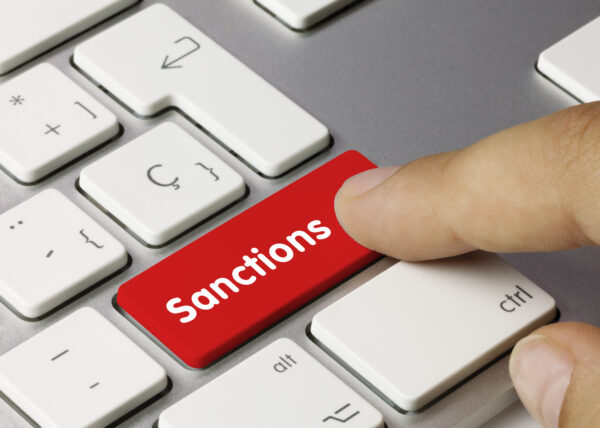“The Second Circuit also found that the district court was within its discretion to enter judgment without considering lesser sanctions due to Goldman’s repeated discovery abuses and misrepresentations to the district court.”
 On September 26, the U.S. Court of Appeals for the Second Circuit issued a ruling in Abbott Laboratories v. H&H Wholesale Services, Inc., the appellate court’s latest decision in a nearly decade-long trademark case over the unlawful diversion of international diabetes test strips into the United States for sale. The appellate court affirmed the Eastern District of New York’s $33.5 million damages ruling against H&H Wholesale over the defendant’s arguments that it was entitled to a jury trial on damages. The Second Circuit also affirmed default judgment against an individual defendant who misled the district court as to her official role with H&H Wholesale.
On September 26, the U.S. Court of Appeals for the Second Circuit issued a ruling in Abbott Laboratories v. H&H Wholesale Services, Inc., the appellate court’s latest decision in a nearly decade-long trademark case over the unlawful diversion of international diabetes test strips into the United States for sale. The appellate court affirmed the Eastern District of New York’s $33.5 million damages ruling against H&H Wholesale over the defendant’s arguments that it was entitled to a jury trial on damages. The Second Circuit also affirmed default judgment against an individual defendant who misled the district court as to her official role with H&H Wholesale.
Defendant Acquiesced to Damages Inquest Without Objection for Jury Trial
In 2015, Abbott Laboratories first began its enforcement campaign against the unlawful diversion of the pharmaceutical company’s FreeStyle diabetes test strips by filing suit against dozens of defendants in the Eastern District of New York. In March 2020, the district court entered case-ending sanctions against H&H Wholesale, adopting a magistrate judge’s recommendation following H&H’s misrepresentation of the amount of responsive documents it would produce during discovery. The magistrate judge also found that H&H Wholesale offered misleading and inconsistent testimony in both court filings and depositions.
In March 2023, three years after the district court entered default judgment against H&H Wholesale, U.S. District Judge Carol Bagley Amon entered the $33.5 million damages judgment that was the subject of the present appeal to the Second Circuit. That order included actual damages of $26 million, which were doubled due to H&H Wholesale’s litigation misconduct. The damages award also included $5.4 million in prejudgment interest as well as $1.5 million in attorney’s fees.
On appeal, H&H Wholesale challenged the district court’s entry of damages on default judgment, arguing that it was entitled to a jury trial on the issue. However, the Second Circuit found that the defendant had waived its right to a jury trial. Although H&H Wholesale requested a jury trial in its answer to Abbott Laboratories’ complaint, the defendant had acquiesced to a damages inquest following the district court’s grant of case-ending sanctions. In response to the district court’s request to address the sequencing of the damages inquest against H&H with a trial against the remaining defendants in Abbott’s case, H&H did not object that it was entitled to a jury trial, instead requesting that the damages inquest take place after the district court held a trial for the remaining defendants.
Discovery Abuses Lead Second Circuit to Affirm Case-Ending Sanctions
Lori Goldman, an individual defendant employed by H&H Wholesale and married to the company’s president, also appealed the district court’s decision to enter case-ending sanctions against her. Goldman argued that these sanctions were imposed upon her without any finding that she had committed fraud on the court, alleging that the sanctions were entered in bad faith.
Affirming the sanctions entered against Goldman, the Second Circuit noted that the report and recommendation entered by the magistrate judge in the Eastern New York proceedings found multiple examples of Goldman misleading the district court. This includes Goldman’s insistence that she had no meaningful involvement with H&H Wholesale’s business activities despite the production of company emails showing that she maintained an office at the company’s facilities, attended management meetings and conducted various business activities on behalf of H&H. These misrepresentations cause Abbott Laboratories to withdraw its motion for preliminary injunction against Goldman during the district court proceedings.
While Goldman had blamed discovery failures on her legal counsel and the acts of H&H Wholesale employees, the Second Circuit found no evidence on the record that any of those personnel prevented Goldman from producing responsive documents. Further, the appellate court noted that only Goldman was responsible for providing false testimony at deposition and during proceedings at district court. Because her sanctions were based on an established record, Goldman also lost on her argument that the district court was required to hold an evidentiary hearing on Abbott’s motion for sanctions. The Second Circuit also found that the district court was within its discretion to enter judgment without considering lesser sanctions due to Goldman’s repeated discovery abuses and misrepresentations to the district court.
The Second Circuit’s decision to affirm the district court’s case-ending sanctions against H&H Wholesale and Goldman comes about a month after U.S. Magistrate Judge Lois Bloom entered a report and recommendation supporting the entry of default judgment against 85 corporate and individual defendants in Abbott’s diabetes test strip trademark case. Magistrate Judge Bloom also recommended enhanced damages totalling more than $54 million to be entered against those defaulting defendants. The district court’s damages calculation followed a theory of lost revenues from the H&H Wholesale damages inquest, by which the court equated each diverted sale of an international FreeStyle diabetes test strips box with a lost sale of an equal sized test strip box for Abbott.
Image Source: Deposit Photos
Author: Momius
Image ID: 388580038

